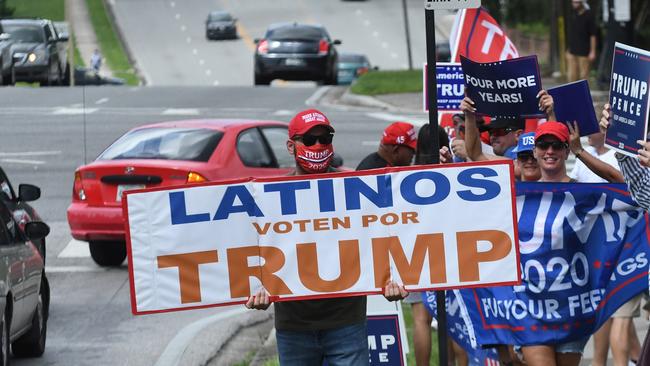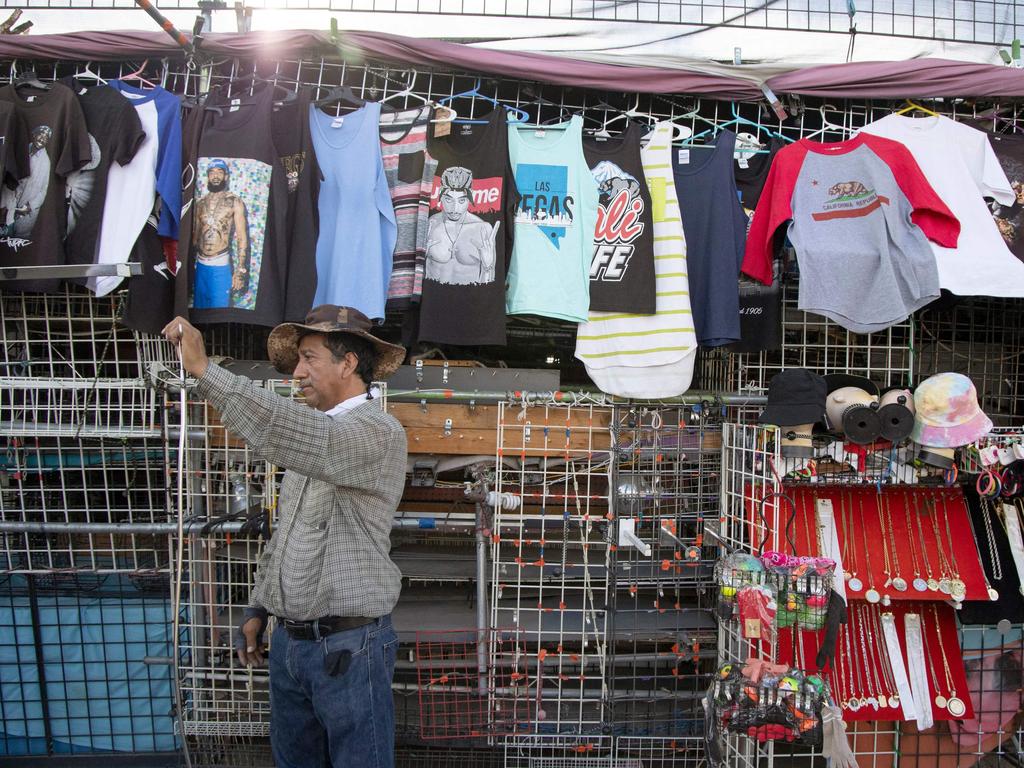US election results: I’m not shocked so many Latinos chose Donald Trump
First and second-generation immigrants often believe in tight controls because we feel it directly if things go wrong.

“The big issue for me is immigration,” said the man behind the first door I canvassed in the 2001 election. I’d expected this. It was one of the hot topics in politics that year, after all. And I was running in Harrow West, where thousands of immigrants had already moved and thousands more were set to come.
What did surprise me, however, was that the man I was speaking to was wearing a turban. His primary concern seemed to be people coming from New Zealand. I found it all most amusing.
But soon I began to understand that my amusement and surprise were entirely misplaced. I encountered this man’s response repeatedly (though never again the New Zealand twist) at houses where the occupants were either first or second-generation immigrants. Sometimes it was delivered in broken English.
And when I thought about it for a moment, I am a second-generation immigrant myself and I believe in immigration control. It was one of the policies on the leaflet I was handing out. So why on earth should I be surprised to find that view quite widespread? I was being, not to put too fine a point on it, stupid.
Last week Donald Trump’s victory was strongly assisted by a large right-turn in voting by Latinos. For sure, Trump’s Latino vote share was still only 45 per cent. In other words, it underperformed his overall vote. But he received a 13-point vote bump, an extraordinary performance.
A Republican promising to deport hundreds of thousands of people, someone who has used very extreme language about immigrants, nonetheless achieved a record Latino vote for his party. And it would be as stupid as I was being in 2001 not to understand why.
One part of the explanation is certainly that Latinos voted for Trump because of the economy, just as so many others did. They didn’t care that at a Trump rally Puerto Rico was called a “floating island of garbage” because they feel Trump can make them better off. But I think there is more to the story. I think many Latinos voted for Trump not despite his views on immigration but because of them.
Let’s leave aside Trump’s rhetoric and the detail (such as it is) of his policy, both of which I recoil from, and instead ask this: why should a first or second-generation migrant vote for immigration control? When this position is taken up by Rishi Sunak or Suella Braverman or Sajid Javid or Kemi Badenoch, the reaction of some progressive critics is that it is either forgetfulness or hypocrisy. But I think this reaction often (not always, often) comes from people who don’t understand the immigrant experience.

The most important thing to appreciate is that for us first and second-generation immigrants there is simply more at stake than for others. We are more engaged with the issue.
It causes some of us, certainly, to support every pro-migrant policy and to see our own experience in the experience of others. And that is part of my outlook too. It is impossible to have found refuge from tyranny in this country, as my family did, and not feel very strongly about the need for a working asylum system, one that is both efficient and compassionate. I also feel immensely strongly about the rule of law and the need for humanity and respect for the individual in the implementation of policy.
All that is essential, but it is only the beginning of the story.
In the interviews that have appeared this week with Latino Trump voters one theme kept recurring. “I came here legally and so should they.” There is more at stake for first and second-generation immigrants, and we therefore care more about the rules and whether they are observed.
There cannot be a functioning, efficient, compassionate asylum system if it is subverted by people smugglers who are seemingly immune to government resistance. Governments have to show imagination about the suffering of oppressed people and understand the tactics they may need to employ in desperation, but this cannot end up as effectively an open borders policy. It is not surprising that migrant voters did not support a Biden administration that leant in that direction.
Rishi Sunak did not, in my view, try to “stop the boats” because in his anxiety to appease conservative Britain he forgot he was from an immigrant family. He cared about the issue precisely because he was from an immigrant family.
Multicultural societies are hard and it is migrant communities who live with that all the time. We know we don’t just come here to mend someone’s dishwasher or serve their food. We come here to be citizens, to be part of something, to have families, raise children, interact with our neighbours, be part of our communities, vote in elections. And it takes time, sometimes generations, for our own values and traditions to fit comfortably in their new environment. It doesn’t happen overnight.
And we can see and feel more directly what happens if it goes wrong. If it all happens too quickly. If integration isn’t a success. If large waves of immigration produce racial tension, the first people to experience that are immigrants and their children. It is unsurprising that we feel particularly sensitive to the balance in our society.
We care a lot about this because it matters more to us if it goes wrong, and the consequences for us are greater. So I naturally empathise with a fellow immigrant family making a life here. And I get the economic arguments too. But I also see the need to control numbers so that each new family can become part of the country that is welcoming them in. I can’t take a blithe, relaxed, abstract, purely economic liberal view of migration that is out of control.
There is something else. Immigrants come to places like Britain for a reason - because they want the life it seems to offer and because they believe in it. So how can anyone find it puzzling that someone like Kemi Badenoch or Sajid Javid would be Conservative in politics and temperament? Immigrants are likely to be high on the list of those resisting unsettling social change, which they have often come here to escape.
I think for Latinos to see Donald Trump as the protector of American values and a source of social stability is a terribly mistaken judgment. Even an eccentric one. But I am not bewildered by it. And nor should any political observer be.
THE TIMES





To join the conversation, please log in. Don't have an account? Register
Join the conversation, you are commenting as Logout